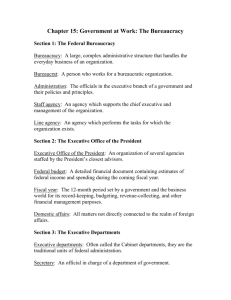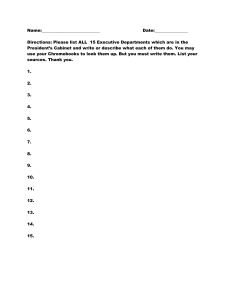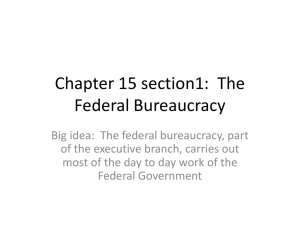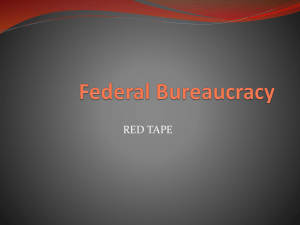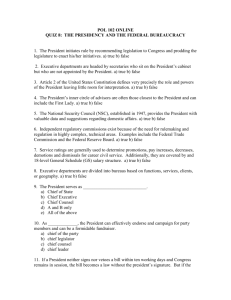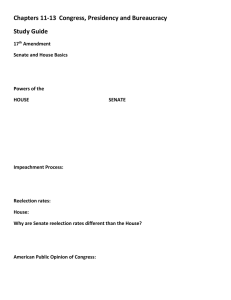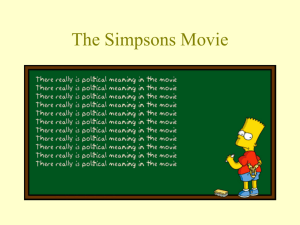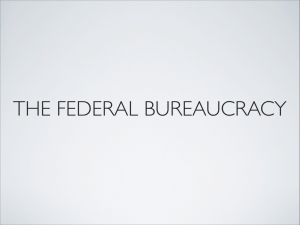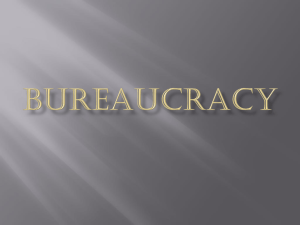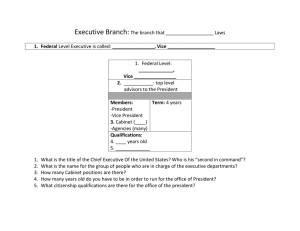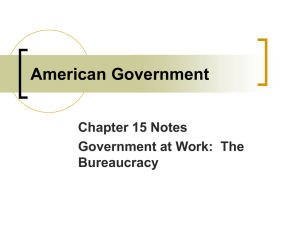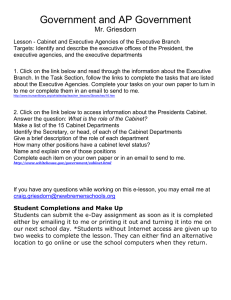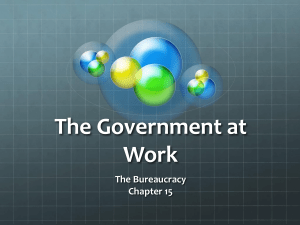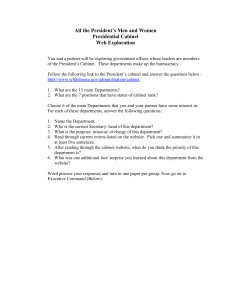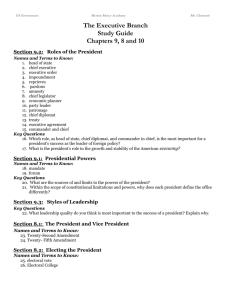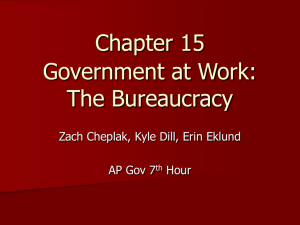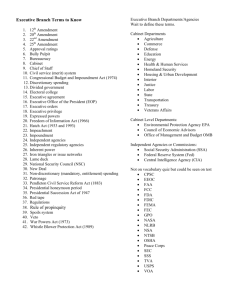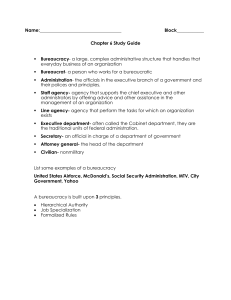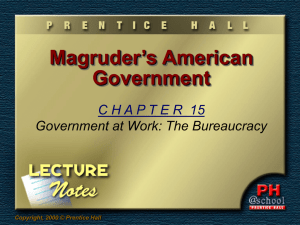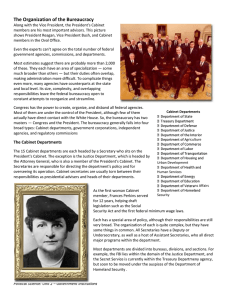Chapter 15 - Gasiorowski
advertisement
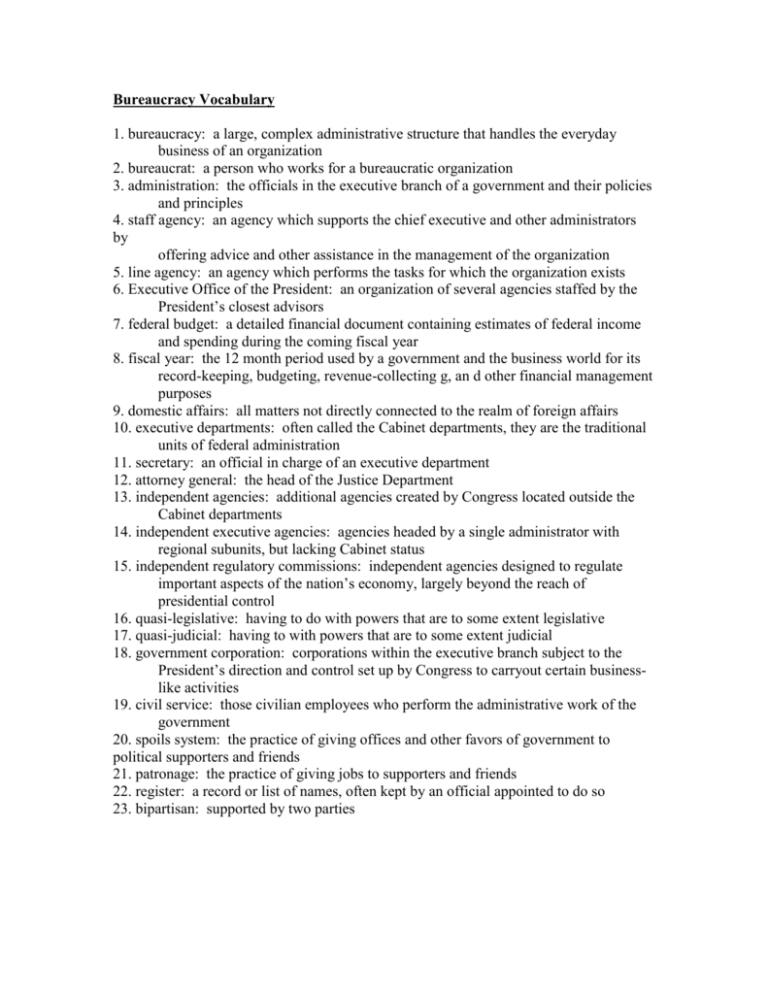
Bureaucracy Vocabulary 1. bureaucracy: a large, complex administrative structure that handles the everyday business of an organization 2. bureaucrat: a person who works for a bureaucratic organization 3. administration: the officials in the executive branch of a government and their policies and principles 4. staff agency: an agency which supports the chief executive and other administrators by offering advice and other assistance in the management of the organization 5. line agency: an agency which performs the tasks for which the organization exists 6. Executive Office of the President: an organization of several agencies staffed by the President’s closest advisors 7. federal budget: a detailed financial document containing estimates of federal income and spending during the coming fiscal year 8. fiscal year: the 12 month period used by a government and the business world for its record-keeping, budgeting, revenue-collecting g, an d other financial management purposes 9. domestic affairs: all matters not directly connected to the realm of foreign affairs 10. executive departments: often called the Cabinet departments, they are the traditional units of federal administration 11. secretary: an official in charge of an executive department 12. attorney general: the head of the Justice Department 13. independent agencies: additional agencies created by Congress located outside the Cabinet departments 14. independent executive agencies: agencies headed by a single administrator with regional subunits, but lacking Cabinet status 15. independent regulatory commissions: independent agencies designed to regulate important aspects of the nation’s economy, largely beyond the reach of presidential control 16. quasi-legislative: having to do with powers that are to some extent legislative 17. quasi-judicial: having to with powers that are to some extent judicial 18. government corporation: corporations within the executive branch subject to the President’s direction and control set up by Congress to carryout certain businesslike activities 19. civil service: those civilian employees who perform the administrative work of the government 20. spoils system: the practice of giving offices and other favors of government to political supporters and friends 21. patronage: the practice of giving jobs to supporters and friends 22. register: a record or list of names, often kept by an official appointed to do so 23. bipartisan: supported by two parties
